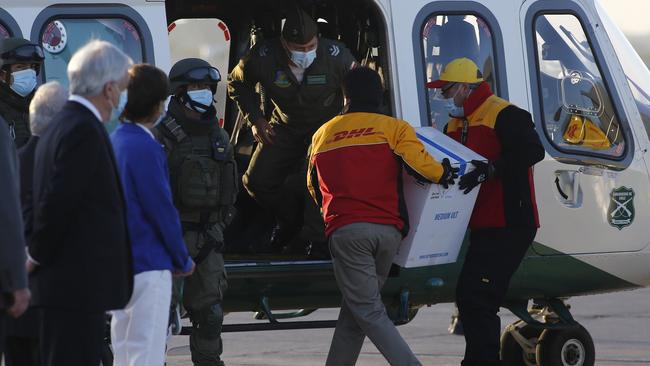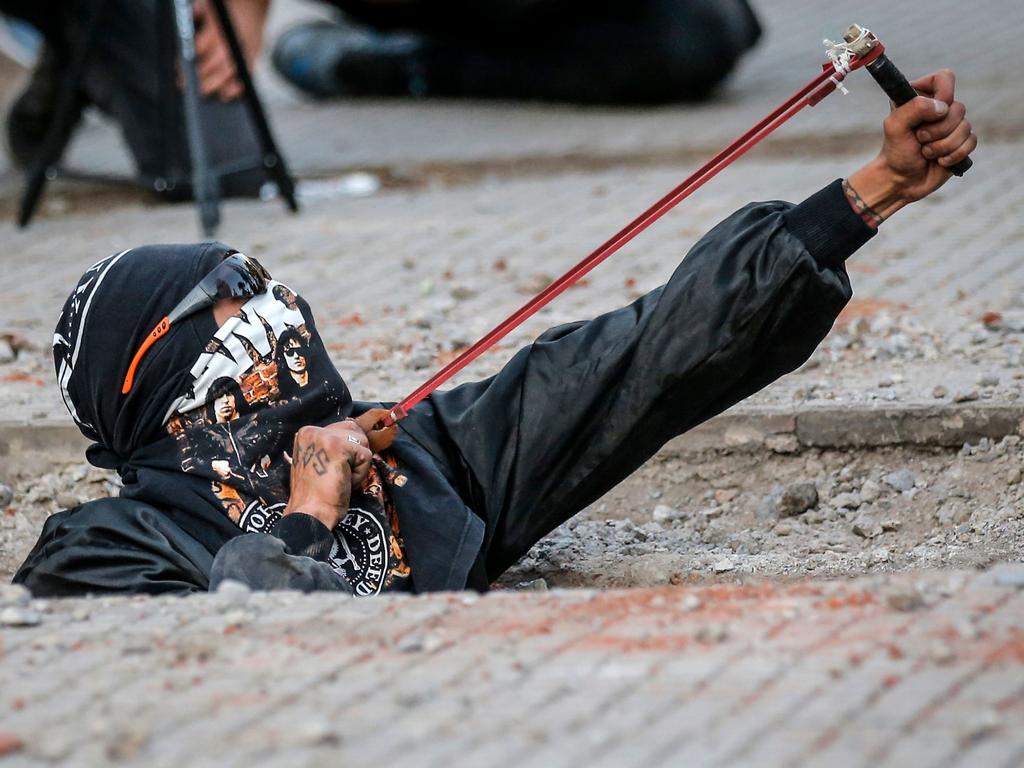Coronavirus: Latin Americans start rollout of mass vaccinations
Three Latin American countries launched mass immunisation programs for the coronavirus on Friday.

Three Latin American countries launched mass immunisation programs on Friday as fears grew in Europe over a variant coronavirus strain believed to be far more contagious than the original version.
Frontline medical staff in Mexico and Chile were among the first to receive their vaccines while Costa Rica began its own immunisation program, with President Carlos Alvarado hailing what “may be the beginning of the end of this pandemic”.
But global optimism was tempered as China and Brazil joined more than 50 governments restricting flights from Britain or air traffic in both directions, after the highly infectious new coronavirus strain first appeared there.
Thousands of trucks remained stranded at a major British port as France sent 10,000 kits to test drivers before allowing them to cross the Channel.
Despite the new strain that British Prime Minister Boris Johnson said was “up to 70 per cent more transmissible” than the original coronavirus, Britain said rail and sea links with France would remain open over Christmas.
Mexico televised the start of its mass immunisation program after it received its first 3000 doses of the Pfizer/BioNTech vaccine from Belgium. Mexico has registered more than 120,000 COVID-19 deaths — the world’s fourth-highest toll after the US, Brazil and India.
In Chile, 46-year-old nursing assistant Zulema Riquelme was the first person shown receiving the jab in the presence of President Sebastian Pinera.
“I’m very excited and nervous,” she said, hours after the first 10,000 doses of the Pfizer-BioNTech vaccine arrived by plane.
Argentina, meanwhile, received the first 300,000 doses of Russia’s controversial Sputnik V vaccine on Thursday on a special flight from Moscow.
The country is the first in Latin America to approve the Russian vaccine. Argentina’s President Alberto Fernandez has vowed to receive the first Sputnik V shot to prove it is reliable after criticism that it was registered before the start of large-scale clinical trials.
Passengers with negative virus tests on Wednesday boarded the first Eurostar trains from London to France since border closures were introduced on Sunday.
The new strain of the virus that surfaced in Britain, and has been detected in small numbers elsewhere, appeared for the first time in Germany after a woman flew in from London. Although it appears to spread more easily, experts say there is no evidence it is more lethal or resistant to vaccines. But the new variant, which is on average 56 per cent more contagious, is likely to boost hospitalisations and deaths from COVID-19 next year, according to a study by the Centre for Mathematical Modelling of Infectious Diseases at the London School of Hygiene and Tropical Medicine.
Israel said it would announce a third national lockdown from 5pm on Sunday for two weeks.
AFP







To join the conversation, please log in. Don't have an account? Register
Join the conversation, you are commenting as Logout